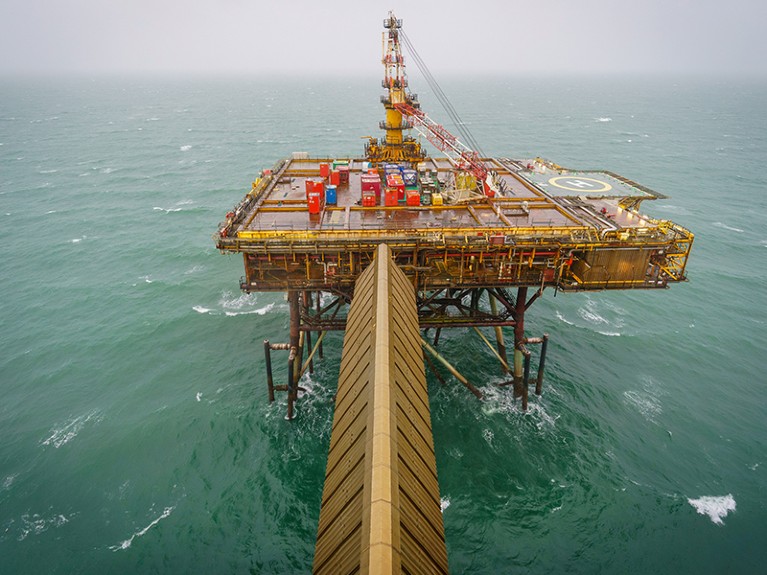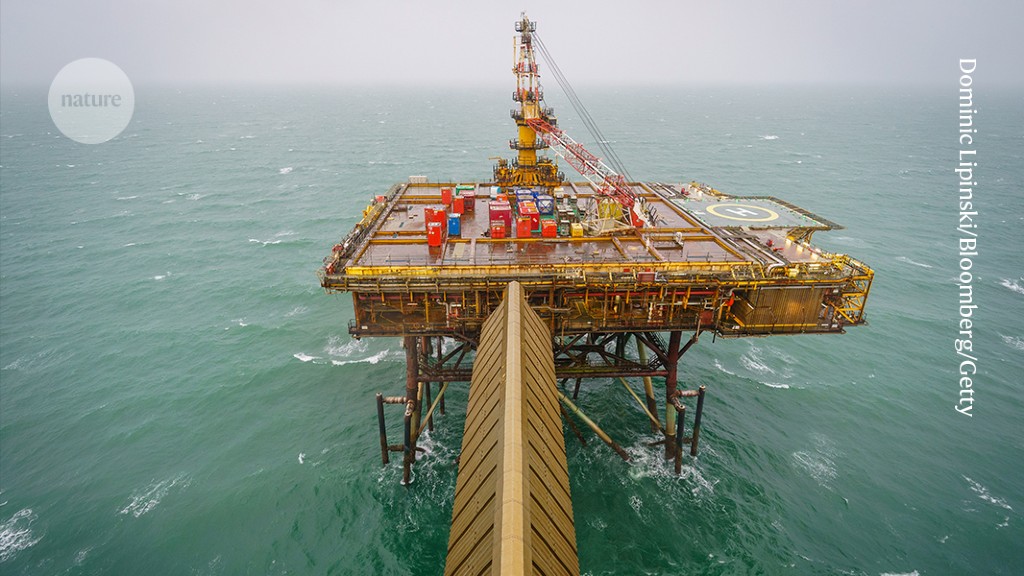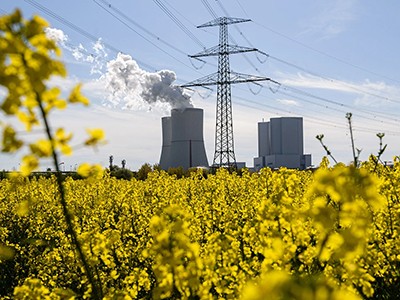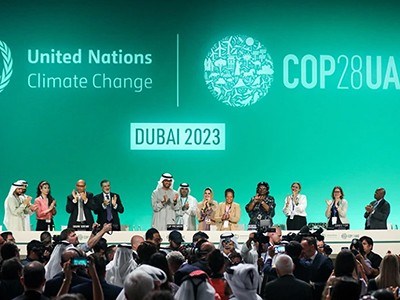
Carbon-capture know-how, corresponding to this plant within the Irish Sea, is on the analysis, growth and demonstration stage.Credit score: Dominic Lipinski/Bloomberg/Getty
Final week, the European Fee printed its long-awaited suggestions for local weather targets for 2040. The fee, which is the chief arm of the European Union, is recommending that EU member states lower greenhouse-gas emissions by 90% by 2040, in contrast with 1990 ranges. If nations agree, this may be an interim milestone, forward of the European Local weather Regulation, which units out a legally binding goal for net-zero emissions by 2050.
A goal lower of 90% just isn’t as formidable as some headlines recommend. The EU’s current insurance policies might cut back emissions by 88% by 2040, based on its personal projections. This may be achieved primarily by means of phasing out coal, changing most fossil-fuel energy to renewable sources corresponding to photo voltaic, wind and tidal vitality, and electrifying transport. There’ll nonetheless be emissions from some autos on the highway, from transport and from aviation. Some oil and fuel energy can even be in use. The fee is, subsequently, proposing to speed up applied sciences, corresponding to carbon seize and storage (CCS), that may take up a few of these remaining emissions and retailer the gases, presumably underground.
EU unveils controversial local weather goal: what scientists assume
The 2040 interim goal was proposed by unbiased climate-science advisers to the EU, and it’s good to see their proposal being carried out. However the advisers additionally cautioned that attending to 90% by together with CCS applied sciences might be difficult. The most important impediment is that the know-how just isn’t prepared — a degree reiterated by local weather scientists who Nature spoke to in our information reporting of the announcement. At current, there may be not a single absolutely operational CCS plant in Europe, nor a system for governing and regulating the know-how. To date, ten CCS initiatives are deliberate within the EU, based on the fee’s science advisers. Assuming all of them operate, their mixed carbon-capture capability is anticipated to be lower than the anticipated contribution from CCS to attain the EU’s 2040 local weather goal.
It’s value quoting the science advisers’ views on the dangers versus the advantages of emphasizing CCS: “This presents a dilemma for policymakers who want to search out methods to incentivise sustainable carbon removing scale-up, whereas avoiding the danger of disincentivising greenhouse-gas emission reductions in several sectors by extra typical means and an appropriate governance system.” Emissions reductions “by extra typical means” consists of efforts to stop the burning of fossil fuels; the advisers are eager to make sure that these usually are not sidelined by policymakers.
The interim local weather goal will now be mentioned by member states, and will face some opposition. European nations have traditionally set more-ambitious local weather targets than different high-income nations, however among the bloc’s largest nations, corresponding to France and Germany, at the moment are dealing with strain to weaken local weather commitments, or are literally reneging on local weather pledges — as the UK can be doing. This strain is coming from many sides, together with political events and particular sectors, corresponding to farmers. Folks have reliable fears concerning the lack of jobs in carbon-heavy industries and over who can pay the prices of changing to electrical autos or decarbonizing home-heating techniques.
COP28 local weather summit indicators the top of fossil fuels — however is it sufficient?
On this respect, the fee’s proposal might have been extra persuasive. The doc advocates for shielding essentially the most weak within the coming vitality transition, in addition to making certain that EU trade stays aggressive. However it’s mild on the specifics of how this could occur. There’s a physique of analysis on the right way to obtain an equitable and simply local weather transition. There are additionally classes from different nations, notably the USA, on how at-risk communities ought to be supported. The European Fee ought to ask its science advisers to synthesize this data in the identical approach they’ve synthesized analysis on situations for the local weather goal itself.
A lot of the present public dialogue round local weather insurance policies presumes that of the choices accessible, enterprise as standard is a greater, or impartial possibility, towards which different decisions are essentially worse. However, because the fee emphasizes, “the prices and human impacts of a altering local weather are massive and rising”. Delaying motion will itself be pricey. That have to be emphasised with extra vigour and urgency over the subsequent few months because the fee seeks to get settlement on its interim targets. It rightly has primarily based its goal on the consensus of scientific recommendation. It ought to seek the advice of its advisers because it begins its interval of public engagement. Researchers will help by advising on not simply how its targets might be achieved, but in addition the prices of not doing so.



